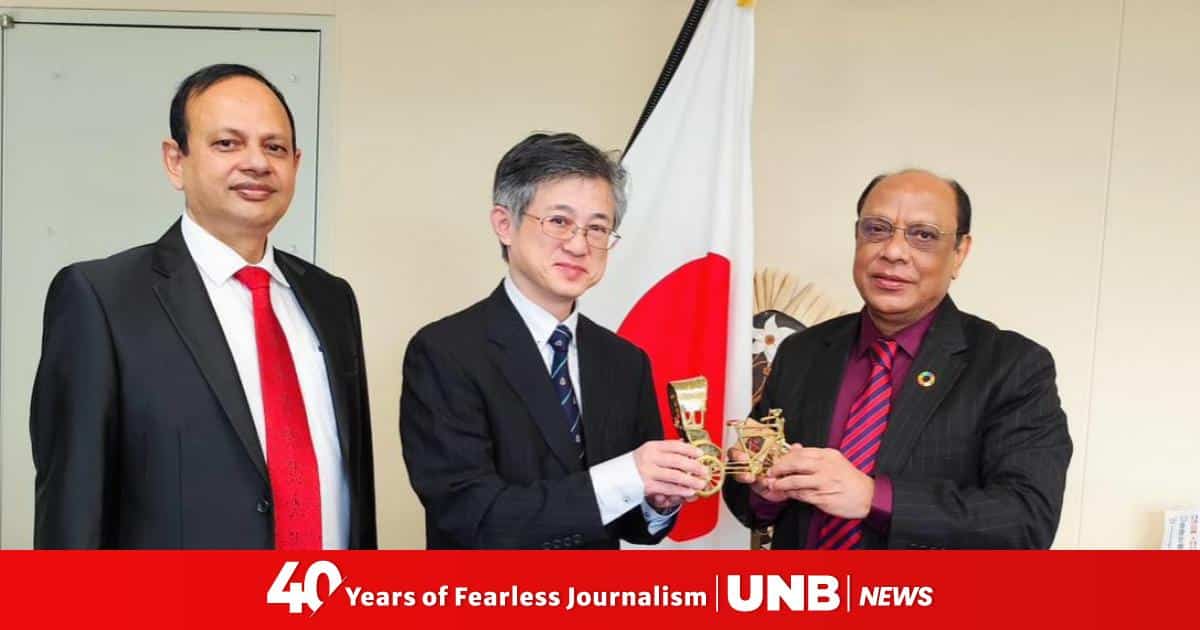Bangladesh and Japan Strengthen Bilateral Ties

On Thursday, Bangladesh and Japan engaged in discussions aimed at enhancing cooperation in skilled migration, healthcare, and pharmaceuticals, marking a significant step in their evolving bilateral partnership. Dr. Neyamat Ullah Bhuiyan, senior secretary of the Ministry of Expatriates’ Welfare and Overseas Employment, met with Akiyama Shinichi, Senior Assistant Minister for International Affairs of Japan’s Ministry of Health, Labour and Welfare, in Tokyo. The meeting underscored the commitment of both nations to deepen their collaborative efforts across various sectors.
Expanding Skilled Migration and Workforce Collaboration
During the meeting, Dr. Bhuiyan emphasized the longstanding relationship between Bangladesh and Japan, rooted in shared democratic values, development goals, human rights, and the rule of law. He highlighted Bangladesh’s extensive experience as a leading manpower-sending country, noting its significant contributions to Japan’s construction, caregiving, manufacturing, and IT sectors. Dr. Bhuiyan referenced recent initiatives, including two Memorandums of Understanding (MoUs) signed during Chief Adviser Prof. Muhammad Yunus’s visit to Japan in May 2025. These agreements aim to facilitate the recruitment of 100,000 Bangladeshi workers over the next five years.
In addition, Dr. Bhuiyan announced the establishment of a dedicated Japan Cell to streamline Japanese language and skills training across both government and private institutions in Bangladesh. He expressed appreciation for Japan’s initiative to conduct Specified Skilled Worker (SSW) field tests in Bangladesh and urged the inclusion of additional sectors such as food and beverage manufacturing, food service, industrial product manufacturing, automobile repair, aviation, and shipbuilding. This expansion reflects Bangladesh’s commitment to meeting Japan’s labor demands, particularly in light of its aging population.
Healthcare and Pharmaceutical Collaboration
Dr. Bhuiyan also proposed enhanced collaboration in the healthcare and pharmaceutical sectors. He encouraged Japan to invest in medical technology and consider importing high-quality pharmaceuticals from Bangladesh. This initiative aims to strengthen the healthcare infrastructure in both countries while fostering economic ties. Akiyama Shinichi welcomed these proposals, acknowledging Japan’s increasing need for foreign workers and expressing a commitment to ongoing cooperation. He encouraged further coordination through Japan’s Ministry of Foreign Affairs and the Bangladesh Embassy in Tokyo.
Later in the day, Dr. Bhuiyan participated in a seminar on Human Resources organized by IM Japan, a prominent organization in Japan that receives foreign manpower. The seminar attracted around 200 Japanese companies, highlighting the growing interest in collaboration between the two nations. This engagement underscores the potential for future partnerships that can benefit both Bangladesh and Japan as they navigate the complexities of a global labor market.
